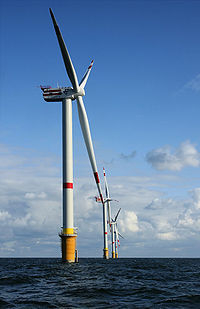Poor Economic Conditions Hammer Public Concern About Environmental Problems

Matthew Kahn highlights some research he's done with Matthew Kotchen that offers empirical support for the theory that a recession is a hard time to get people to care about the environment.
Here's the abstract for "Environmental Concern and the Business Cycle: The Chilling Effects of Recessions":
This paper uses three different sources of data to investigate the association between the business cycle—measured with unemployment rates—and environmental concern. Building on recent research that finds internet search terms to be useful predictors of health epidemics and economic activity, we find that an increase in a state's unemployment rate decreases Google searches for "global warming" and increases searches for "unemployment," and that the effect differs according to a state's political ideology. From national surveys, we find that an increase in a state's unemployment rate is associated with a decrease in the probability that residents think global warming is happening and reduced support for the U.S to target policies intended to mitigate global warming. Finally, in California, we find that an increase in a county's unemployment rate is associated with a significant decrease in county residents choosing the environment as the most important policy issue. Beyond providing the first empirical estimates of macroeconomic effects on environmental concern, we discuss the results in terms of the potential impact on environmental policy and understanding the full cost of recessions.
But of my pitch about why progressives need to care more about monetary policy is based around this. There are many, many, many more people working in Washington, DC on progressive environmental policy than on improved macroeconomic stabilization policy. But good economic conditions are a precondition for getting people to be broad-minded enough to worry about diffuse environmental hazards. Similarly, there are many, many, many more people working in Washington, DC on progressive immigration policy than on improved macroeconomic stabilization policy. But, again, poor economic conditions completely transform the political landscape in which immigration reform advocates are working in a way that makes it essentially impossible to be effective.


Matthew Yglesias's Blog
- Matthew Yglesias's profile
- 72 followers



